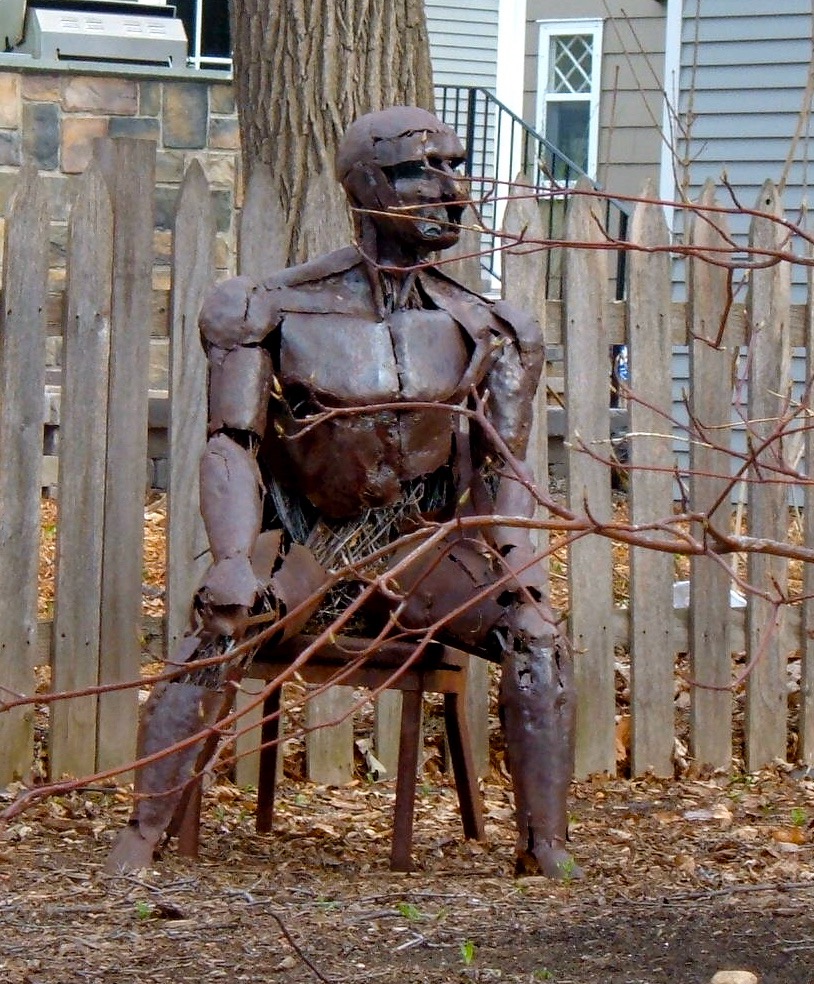One time my husband and I attended a funeral. We got there earlier than we needed to—during the visitation, which was the hour before the service. So, we sat in one of the back pews with our niece, her boyfriend, and her sister, Jessica with her new baby boy.
Just two and three pews ahead of us, several people were standing around visiting with each other. There was an older woman with snow-white hair. She probably had Parkinson’s, because her head bobbed up and down like she was agreeing with you in a slow sort of way. She stooped forward just a bit, which made her look like she was heading somewhere.
Pretty soon another, younger (though not that much younger) woman with steel grey hair came over toward this white-haired woman. At first, I couldn’t tell if she was nodding to something someone said. But as her nodding continued, I surmised that she might have been suffering from Parkinson’s as well. It caught my eye because her head was nodding a bit faster than the first woman’s.
Of course, they knew each other. So, the younger, old woman bobbled toward the older, old woman and started speaking to her. She put her hand on the older woman’s shoulder, but because of her affliction it didn’t stay put, but continuously patted the older woman’s shoulder.
There it stayed for the duration of their conversation—patting, patting, patting.
Then she leaned closer, in order to whisper something in the older woman’s ear. Her nodding continued in a disjointed way as if she was agreeing, and then not agreeing, but thinking about agreeing, through the conversation. As she got closer, their heads nodded at different speeds.
I watched to see if the woman really would get close enough to whisper in her friend’s ear, or if they would bump heads in some kind of lazy, continuous knocking.
But no. They succeeded in the intimate discourse. Suddenly, the younger, older woman laughed, an open-mouthed guffaw, which seemed incongruous with her demurely dressed attire and attitude thus far.
As they spoke their nodding became more rapid and accentuated even as it continued in its differing speeds and directions. I wondered what all that nodding does to the neck muscles and I worried a little about what infirmity would be my own demise.
Finally, they were done with their conversation and the younger, old woman moved away with a tremulous wave of her hand, both of them still bobble-heading. The older, old woman sat down with a shaky, askew slant, clutching the tops of the pews as she sat. She pulled her purse onto her lap and begun the infinitely, tremulous task of searching for something inside.
I leaned over to Jessica and asked her if she had noticed the two women talking.
“Yes.” She said, “I couldn’t look away.”
It was fascinating.
Par·kin·son’s dis·ease | ˈpärkənsənz dəˌzēz |
A noun / Definition: a progressive disease of the nervous system marked by tremor, muscular rigidity, and slow, imprecise movement, chiefly affecting middle-aged and elderly people. It is associated with degeneration of the basal ganglia of the brain and a deficiency of the neurotransmitter dopamine.
